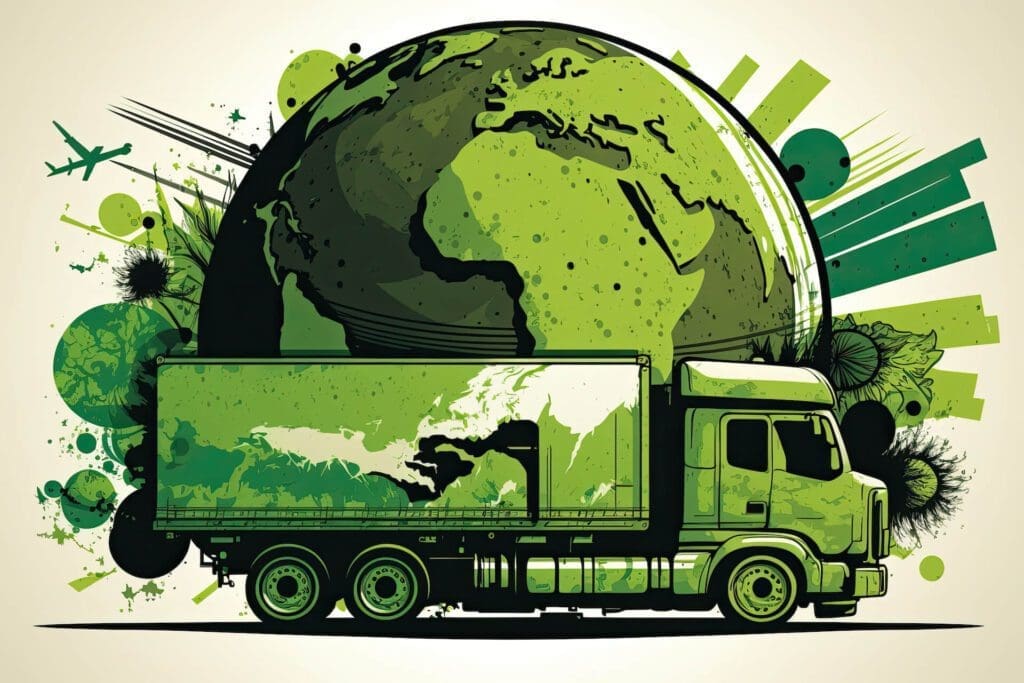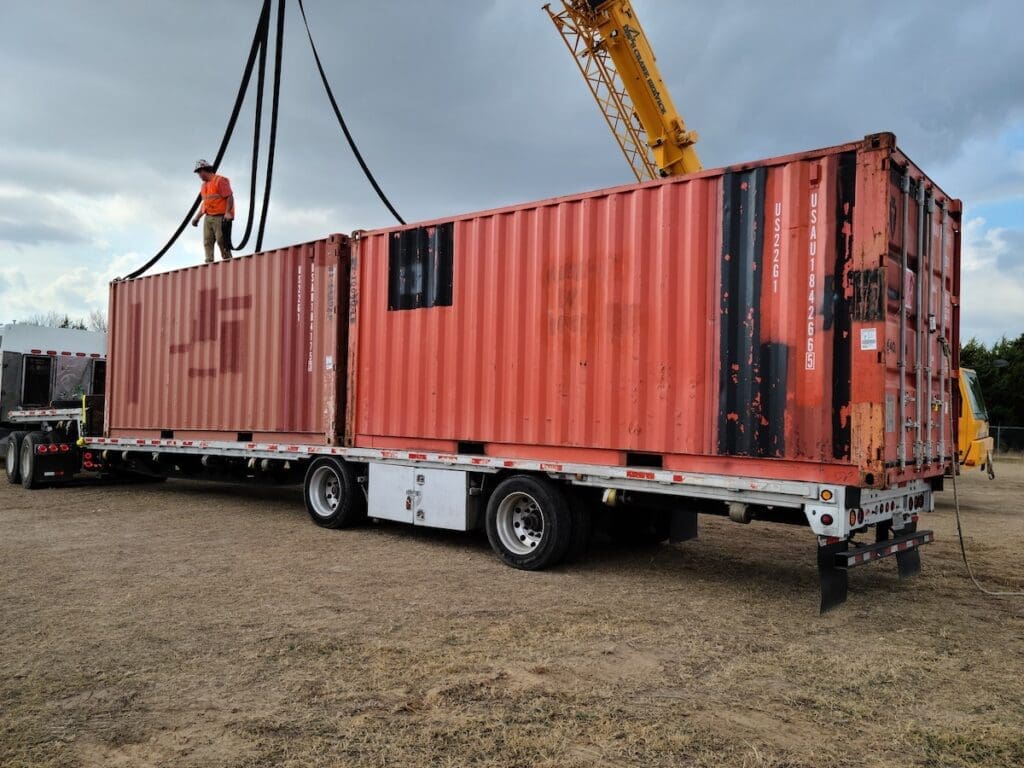With the concern about our world and our impact upon it, many industries are making the switch to greener practices to do their best to support a healthy planet. Logistics is another area where businesses are becoming more savvy about considering environmental impact in their routines. Green logistics take the environment into account, but that doesn’t mean that customer satisfaction takes a hit, either.
Finding greener ways to move freight is incredibly important to the viability of our planet. One study found that a large portion of greenhouse gas emissions come from just transporting freight over roadways. This means that the industry of logistics has been impacting the environment negatively for some time and that in order to protect the world we live in, changes need to be made.
The Growing Importance of Green Logistics
Consider your daily routine. Think about the things you do each morning to get ready for your day. You may get up and drive to the gym, come home and take a shower, get dressed, and have breakfast. Each of those steps required some kind of intervention from logistics. For your bath products in your home, you need products to be delivered, and for the clothes to put on for your day, those have been delivered to a store by some logistics company. Each step of your day has been impacted by this industry.
Because logistics, the act of delivering products from manufacturers to the stores that sell them, are an integral part of our day, moving to better practices is vital for the health of the environment.
There are several benefits to engaging in energy-efficient logistics for both businesses and homeowners:
- Cost cutting. Because green logistics have a major focus on efficiency, many efficiency practices reduce waste and cut costs.
- Better operations. Efficiency is king when it comes to going green, and making operations run more efficiently will actually help simplify processes.
- Lowered carbon footprint. By moving to greener practices in logistics, many companies have the opportunity to lower their carbon footprint by reducing emissions.
Alternative Fuels
As technology advances, new fuels are being developed and tested for efficiency and sustainability purposes. Fossil fuels are a non-renewable energy source, which means that their lifetime is finite. That means that this is an excellent time to explore alternative fuels to find one that releases fewer emissions and is sustainable in the long term. Some of these fuels include biofuels, hydrogen fuel cells, and natural gas.
Biofuels
Biofuels are fuels created from a biological source. This can mean natural products like wood, residues from agriculture like molasses, or crops. Unfortunately, this can prompt a debate over how these resources are best used. That’s why newer generations of biofuels are using waste products like sawdust, rice straw, and more. Unfortunately, this requires a lot of land to be able to make the amount of fuel necessary to be practical. On a small scale, biofuels work well, but they wouldn’t be the most effective replacement for fossil fuels.
Hydrogen Fuel Cells
This alternative is potentially emissionless, which is a great improvement from our current widely used form of fuel. As long as there is no carbon used in the process of production, hydrogen is a clean fuel. Hydrogen also has the ability to operate at a greater efficiency level than traditional fuel sources. It can be a little difficult to handle and store, however.
Natural Gas
This is another clean-burning energy source. It’s already nearly 30% of the energy used in the US currently, so this is a possible natural leap. While much of what is used currently is considered a fossil fuel, there is renewable natural gas that can be produced using waste products from organic materials. Natural gas must either be liquefied or compressed to be used in vehicles, and the liquefied version can be difficult to produce and store, while the compressed version can achieve nearly the exact fuel economy as traditional fuel sources.
Benefits of Using Alternative Fuels in Transportation
Of course, there are important benefits to using alternative fuel methods. First and foremost is the reduction in gas emissions. Because the climate is affected by greenhouse gasses and carbon emissions, reducing them as much as possible across industries is crucial to the climate’s health.
Additionally, reducing our dependence on fossil fuels is another massive benefit. We know that fossil fuels will eventually run out, and having an alternative now evades a crisis down the road. On top of that, the fossil fuel industry is incredibly fragile, and the smallest issue causes a major price spike. With the development of alternative energy and fuels, costs may be driven down for the consumer over time.
The Future of Alternative Fuels in Logistics
It’s clear that something has to change, and as distribution and logistics contribute to damage to the climate, this is one logical place where a change can and should occur. Many companies are taking the conversion seriously and are making changes for a healthier climate.
Electric Trucks: The Future of Sustainable Transportation
Electric trucks aren’t yet widely used in the transportation industry; however, they’re growing increasingly popular. Right now, as technology develops, these vehicles can be expensive for smaller operations, but they’re currently less than half the cost per mile versus diesel or gas. In time, this efficiency will likely increase.
While the cost benefits are important, the environmental benefits cannot be discounted either. Electric trucks offer zero emissions, which is obviously a massive improvement to other traditional kinds of fuel. They also run much quieter, giving the benefit of reduced noise pollution. Companies like FedEx, Amazon, and Hertz have already made the commitment to switch or replace their fleets with electric vehicles. As more companies make the switch, and as the quality of these vehicles gets better, this will be a better option overall.
Sustainable Packaging: Minimizing Waste and Reducing Environmental Impact
Just changing to alternative fuels isn’t the only thing that can be done in the way of renewable energy logistics. Sustainable packaging is also a vital step. Chances are, you’ve ordered something and have seen the amount of waste that goes into shipping. Just reducing the amount of packaging goods used in logistics will create a huge impact.
There are major benefits of using sustainable packaging that aren’t just limited to reducing your carbon footprint, which is already incredibly important. In addition to this, sustainable packaging reduces waste. Pallets are an excellent example of this. Wooden pallets have long been used in shipping, but using recycled or recyclable plastic instead reduces waste and creates a product that is reusable.
Finally, sustainable packaging can help with brand recognition. When you make sustainability a part of your brand and commit to it, the things that you use for packaging will become a part of your brand. Using reusable, biodegradable, compostable, or recyclable packaging makes a statement about your brand and gives you the opportunity to be innovative in your logistics.
The Path Forward
The clear path forward is to engage in sustainable practices. Very soon, green logistics will become the norm, so joining this movement is proactive. First, choosing sustainable packaging for shipping purposes is the minimum. Recyclable goods are easy to source, and even compostable packaging is becoming easier to find. It also gives back to the environment, as do biodegradable items that will break down more quickly when consumers inevitably throw things away.
Employing electric vehicles now gets you and your company on the path toward the future. While this technology is still being developed, even adopting electric vehicles now makes a statement and helps you and your company do its part to help the environment.
Adopt Green Logistics
Innovation is key in any industry, and staying at least with the pack, rather than falling behind, helps you stay ahead. Green logistics gives companies the opportunity to create new methods and products for sustainability. For green logistics to be successful, continuous innovation is vital. We should always be doing more to do the most good. Without innovation, it’s difficult to know if the practices being implemented now are the best options.
There is an incredible amount of potential for the logistics industry to make changes now that make way for the best future. Eco-friendly packaging and green transportation are easy industries to make changes to while not making any changes to the bottom line. Consumers are now more interested than ever in sustainability and in using companies that care. Green logistics help to pave the way for a better future.
Environmentally friendly shipping requires just a little work on your part to make a major impact on the world. At Next Exit Logistics, we believe in innovation and efficiency. We’re committed to making and maintaining changes while still offering a full range of services for logistics needs. Learn more about our specialized shipment options today.
FAQ:
What Is Green Logistics?
Green Logistics involves practices for moving products that focus on efficiency and take the environment into consideration when transporting freight.




